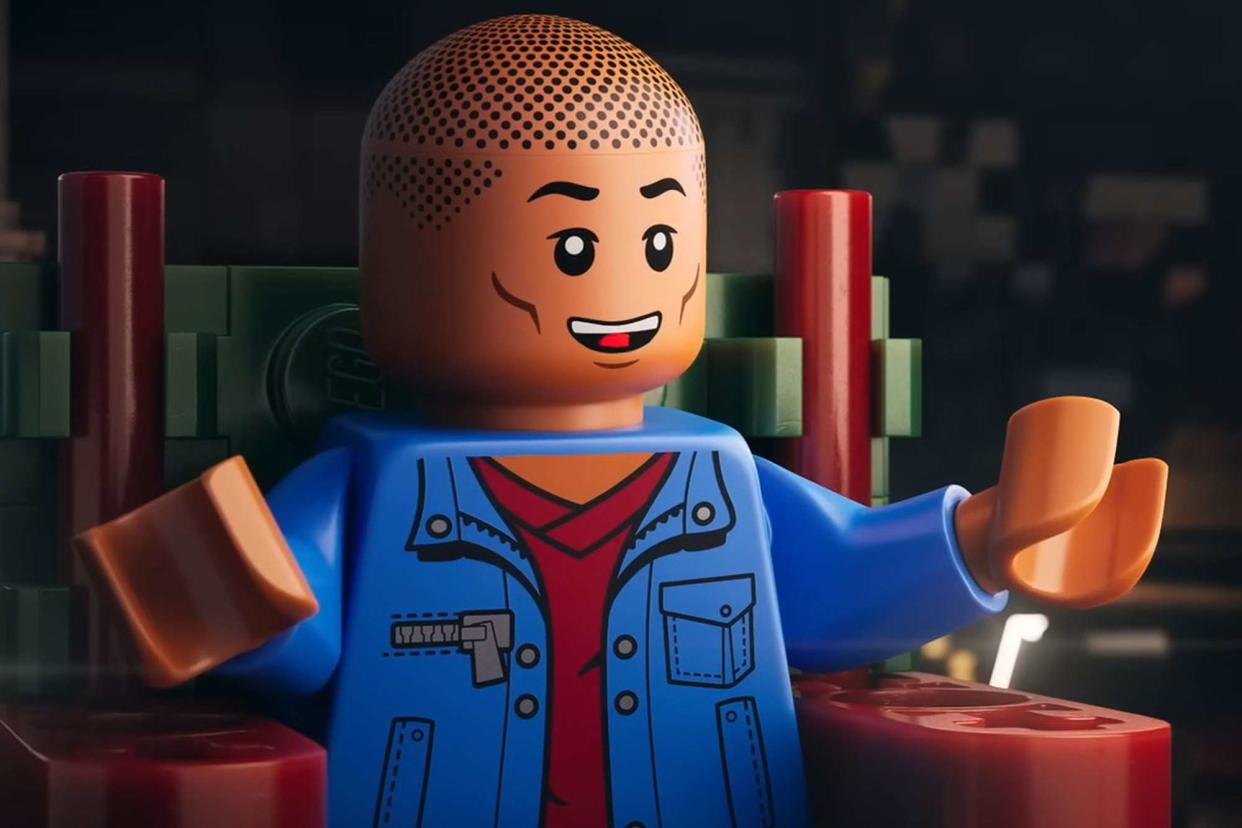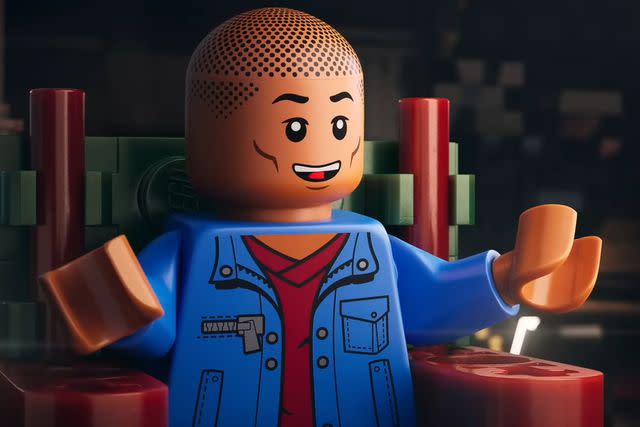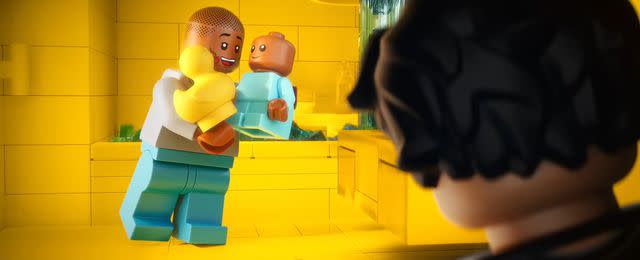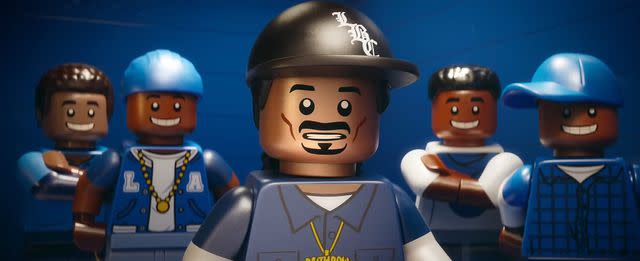“Piece by Piece” is a by-the-brick documentary that tells Pharrell's story with animated whimsy
Pharrell Williams and his collaborators are transformed into Lego figures as he recounts his life story.

LEGO/YouTube
Clap along if you feel like watching a documentary narrative told via Lego.
That's exactly what happens with Piece by Piece, the latest documentary from Morgan Neville (Won't You Be My Neighbor?). The concept itself is fascinating, telling the life story of artist and legendary music producer Pharrell Williams entirely through animated Lego.
The idea was actually Williams', a fact which aligns with the self-described "maverick." It's a fresh take on a talking heads documentary, recreating moments of Williams' past with Lego reenactments and visualizing Williams' relationship with music through colorful, glowing bricks.

LEGO/YouTube
'Piece by Piece'At first, it's a delight to see the likes of Pharrell, Neville, Jay-Z, and Gwen Stefani rendered as Lego figures. It gives Williams' biography a playful, vibrant lens. (Let me tell you, I never knew I needed Lego Snoop Dogg in my life until this film.) But after the novelty wears off, the plasticine nature of the Lego bricks reveal their limitations.
Related: Watch the trailer for Pharrell's biopic, 'Piece by Piece,' told via Lego
While past memories and Pharrell's childhood fantasies play out with whimsical fervor, other segments would have been better served with archival footage. I don't want to see a Lego version of No Doubt or Justin Timberlake recording hit songs with Pharrell — show me the actual footage from the recording sessions! And it feels downright odd to watch something like Pharrell's interview with Oprah recreated in Lego, rather than just seeing clips of the interview itself.
The concept becomes completely tonally dissonant in the documentary's more emotional moments — it's hard to feel pathos for Williams's monumental loss of his grandmother when you're watching a Lego figure fall to its knees in front of a Lego doctor. Particularly because Lego can't cry; they can only pantomime emotion through the limited design of their faces.

LEGO/YouTube
'Piece by Piece'Perhaps the most head-scratching moment is watching the Black Lives Matter protests transformed into Lego animation. What should be an emotional turning point for Williams in his life and careers is instead, well, cartoonish.
The film's biggest disappointment is that it gives us no real insight into who Williams is and why he should be the subject of a documentary, even one as fantastical and playful as this is at times. The title alludes to how the film and Williams's career was built piece by piece like a Lego figure. Indeed, its grand thesis is that sometimes the key to success is taking things apart brick by brick and rebuilding.
Want more movie news? Sign up for Entertainment Weekly's free newsletter to get the latest trailers, celebrity interviews, film reviews, and more.
Related: How to make a song about a living legend, according to Pharrell
Piece by Piece is a by-the-numbers — or rather, by-the-brick — biographical documentary complete with talking head interviews and flashbacks. The film tells us that Williams connected with music at a young age, recounts how he found success, runs through a laundry list of the greatest hits he helped produce, and even touches on some professional low points. But it never gives us a why for all of this. Sometimes it fails to even give a how — how did Williams create so many musical hits and catch beats? What is the key to his sonic genius? The movie certainly doesn't tell us (or even attempt to answer that).

LEGO/YouTube
'Piece by Piece'There are glimmers of insight here, often in the brighter moments (for instance, the sweet story of how Pharrell devised his massive hit, "Happy," and the emotional response triggered by its success). But despite touting an inventive concept, the whole thing remains fairly surface level.
Is it charming to watch beloved childhood days be implemented in narrative nonfiction storytelling? Yes. And that is sure to leave audiences happy. But if happiness is the truth, there's not many nuggets of such joy to be found here. Grade: B-
Read the original article on Entertainment Weekly.
